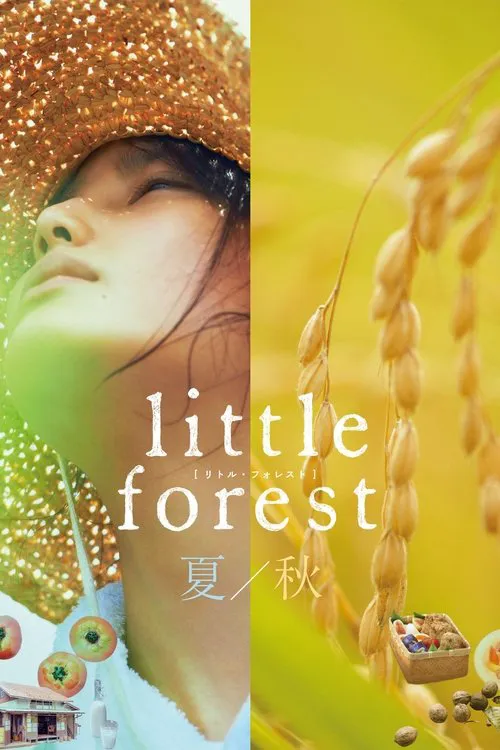Little Forest: Summer/Autumn

Plot
In the serene and picturesque town of Komori, nestled in the heart of rural Japan, Ichiko returns to a world vastly different from the one she knew five years ago. The once bright-eyed and ambitious city dweller has been broken by the cruel harshness of heartbreak and urban life. As she steps off the train and into the lush green surroundings of her childhood home, Ichiko feels a sense of solitude wash over her. The humid summer air envelops her like a damp shroud, weighing her down and making her feel even more disconnected from the world around her. As Ichiko navigates the winding roads and dusty alleys of Komori, she is met with a sea of familiar yet foreign faces. The locals, who have known and cherished her since childhood, greet her with warm smiles and gentle curiosity. They inquire about her city life, but Ichiko remains tight-lipped, hesitant to reveal the pain and heartache that has driven her back to the comforting embrace of her hometown. Ichiko's days are spent engaging in simple yet soul-stirring tasks that bring her closer to the natural world. She begins by starting her own bakery, kneading the dough with a practiced hand as she carefully shapes it into delicate loaves of bread. The process is meditative, allowing her to lose herself in the rhythmic motion of mixing and kneading. The aroma of freshly baked bread wafts through the air, enticing the neighbors and visitors to sample her creations. In the gardens, Ichiko finds solace in tending to her hothouse tomatoes, carefully coaxing them to ripen under the warm summer sun. She tends to the soil with devotion, watching as the vines grow and produce juicy red tomatoes that seem to burst with flavor. Her love for the land and the simple pleasures in life becomes more apparent as her confidence grows. Autumn arrives, bringing with it a new set of culinary challenges. Ichiko turns her attention to pickling and preserving the bounty of the season, transforming the abundance of sweet potatoes and fish into edible treasures that will sustain her through the winter months. In preparation for the harvest, Ichiko sets her sights on reaping the rice, carefully following the traditional methods passed down through generations of Komori farmers. As she toils in the fields, Ichiko's memories of her departure five years ago begin to resurface. She recalls the excitement and anxiety of leaving Komori to chase her dreams in the city, the thrill of independence and new experiences that had initially captivated her. Now, as she stands amidst the rustic beauty of her childhood home, she begins to understand the value of roots and the depth of her own connection to this land. Ichiko's struggles to find balance between her urbanized ambitions and her rural roots serve as a poignant reminder of the fluidity of life and the ease with which it can change course. Her experiences, like the seasons themselves, are marked by cycles of growth, decay, and renewal. Through her quiet determination and hard work, Ichiko gradually heals her heartbreak and finds redemption in the familiar landscape of her hometown. The Little Forest's gentle narrative provides a poignant exploration of the relationship between nature, memory, and identity. Ichiko's journey is not a triumphant return to the status quo but a subtle and deeply personal exploration of her own place in the world. In Komori, Ichiko rediscovers the beauty of simple, rustic living, and in doing so, finds a new sense of purpose and belonging in the world around her.
Reviews
Recommendations




